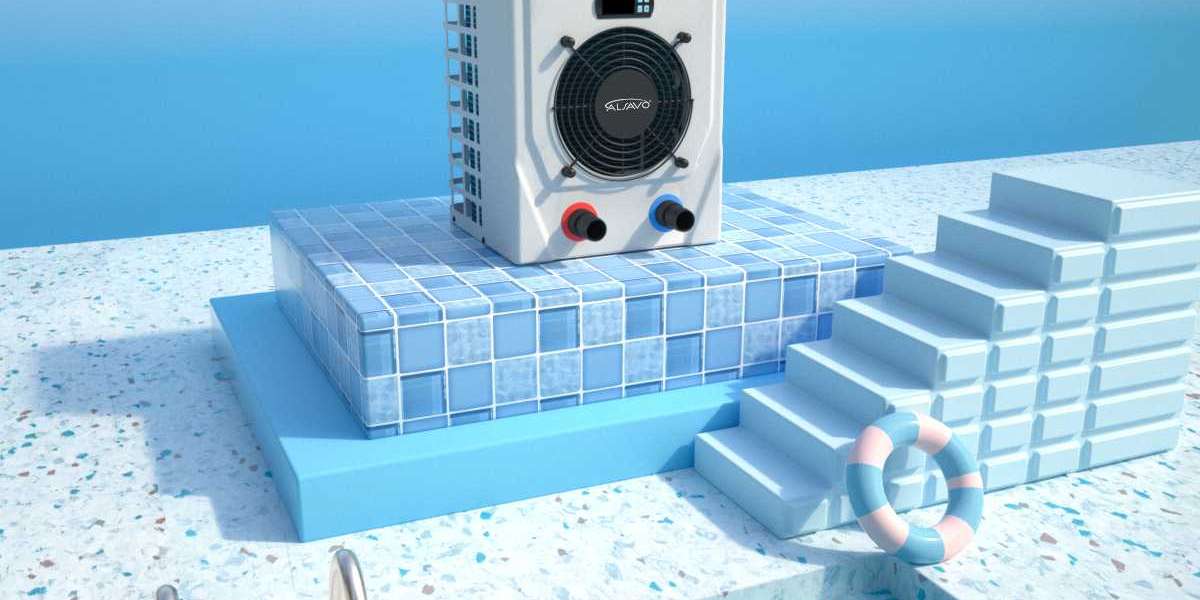Swimming pools are a great source of entertainment, exercise, and relaxation. However, they can also pose a significant safety risk, especially for children and inexperienced swimmers. Every year, thousands of people are injured or killed in pool-related accidents, many of which are preventable. In this article, we will provide some essential tips for keeping your family and guests safe around your pool, including information on the benefits of using a heat pump swimming pool heater.
Install a Fence
One of the most effective ways to prevent accidents around your pool is to install a fence around it. According to the U.S. Consumer Product Safety Commission (CPSC), all pools should be surrounded by a fence that is at least four feet tall and has a self-closing, self-latching gate. The fence should be made of a sturdy material that cannot be easily climbed, such as metal or vinyl.
Keep the Pool Clean
A clean pool is not only more attractive and inviting, but it is also safer. Algae, dirt, and other debris can make the pool surface slippery and increase the risk of slips and falls. In addition, a dirty pool can harbor harmful bacteria that can cause illness or infection. Regular cleaning and maintenance are essential to ensure that your pool is safe and healthy for swimmers.
Install Pool Alarms
Pool alarms are another important safety feature that can alert you if someone enters the pool area without your knowledge. There are several types of pool alarms available, including gate alarms, surface wave sensors, and underwater motion detectors. Some pool alarms can also be integrated with your home security system, providing an extra layer of protection.
Supervise Children at All Times
Children should never be allowed to swim unsupervised, even if they are experienced swimmers. It only takes a few seconds for a child to slip underwater and become submerged. Parents and caregivers should always be within arm's reach of children who are in or near the pool. In addition, it is essential to teach children how to swim and follow pool safety rules.
Learn CPR
CPR (cardiopulmonary resuscitation) is a life-saving skill that can mean the difference between life and death in an emergency situation. Every adult who uses the pool should know how to perform CPR, including chest compressions and rescue breathing. Many community organizations, such as the Red Cross, offer CPR training courses that are accessible and affordable.
Use a Heat Pump Swimming Pool Heater
 heat pump swimming pool heater
heat pump swimming pool heater
A heat pump swimming pool heater is an energy-efficient way to keep your pool water warm and comfortable year-round. Unlike traditional gas pool heaters, heat pumps do not burn fuel to create heat. Instead, they use electricity to transfer heat from the air to the water, making them much more efficient and cost-effective. In addition to providing consistent heating, heat pump pool heaters are also safer than gas heaters, as they do not produce harmful emissions.
Have a First Aid Kit on Hand
A well-stocked first aid kit is an essential item to have on hand in case of an emergency. It should contain items such as bandages, antiseptic ointment, sterile gauze, and pain relievers. Keep the first aid kit in a waterproof container near the pool, so it is readily available in case of an emergency.
Don't Allow Diving
Diving can be dangerous, especially in a shallow pool or one that is not designed for diving. The CPSC recommends that pools that are less than nine feet deep should not be used for diving. In addition, swimmers should always check the depth of the water before diving and should never dive headfirst into shallow water.
Teach Swimmers the Risks of Hyperventilation
Hyperventilation, or over-breathing, can be dangerous for swimmers, especially those who are not experienced. When a swimmer hyperventilates, they decrease the carbon dioxide in their bloodstream, which can lead to a loss of consciousness while underwater. It's important to teach swimmers the risks of hyperventilation and encourage them to breathe normally before and during swimming.
Store Chemicals Safely
Pool chemicals are necessary to keep the water clean and safe, but they can also be hazardous if not handled properly. It's important to store pool chemicals in a cool, dry, and well-ventilated area, away from direct sunlight and other heat sources. Chemicals should also be stored out of reach of children and pets, and never mixed together unless specifically directed by the manufacturer.
Know the Signs of Hypothermia
Hypothermia can occur when the body loses heat faster than it can produce it, such as when swimming in cold water. Symptoms of hypothermia include shivering, confusion, dizziness, and fatigue. If you or someone you know shows signs of hypothermia, it's essential to get out of the water and warm up as soon as possible.
Follow Local Safety Regulations
Pool safety regulations can vary depending on your location, so it's important to know and follow the rules in your area. For example, some jurisdictions may require pool owners to have a permit or obtain liability insurance. Others may have specific requirements for pool fencing or pool covers. Be sure to research and comply with all local safety regulations to ensure that your pool is safe and legal.
In conclusion, heat pump companies pool safety is a critical issue that should never be taken lightly. By following these essential tips, you can help prevent accidents and ensure that your family and guests can enjoy your pool safely. Additionally, using a heat pump swimming pool heater can provide consistent, energy-efficient heating while also minimizing safety risks associated with traditional gas heaters. So, keep these tips in mind and enjoy your pool while staying safe!



